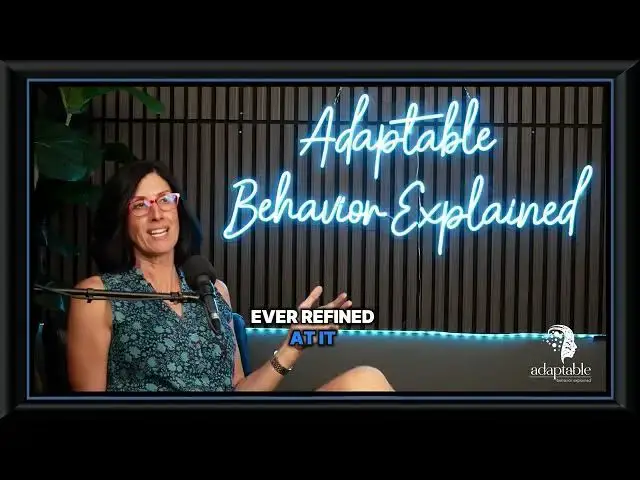0:00
I'm Kelly O'Horo, your host. I am an
0:02
EMDR therapist and super passionate
0:05
about helping people understand why we
0:08
behave the way that we do and that's
0:10
what this show is all about. Today we're
0:12
going to be talking about a topic that I
0:14
have never met a single person that
0:16
doesn't struggle with and that's
0:17
boundaries, but more importantly the
0:20
nuances between kind of what our friend
0:23
calls the foreseeable crisis and how do
0:26
we navigate when do we step in and help?
0:29
when do we pull back because it's
0:31
someone else's journey to learn about
0:33
and how do we determine you know what
0:36
are we going to do to figure this out.
0:38
So every single relationship that people
0:42
have struggle with this whether it's a
0:44
partner a friend one of your kids uh or
0:47
in my case clients they struggle with
0:49
this. How do we balance giving someone
0:51
autonomy while offering support to them
0:54
and what's too much? What's considered
0:55
enabling? How do we manage the
0:57
boundaries around when someone we care
0:59
about is in a crisis? If you've ever
1:01
felt torn about this, then you're
1:03
certainly not alone. I feel like this
1:06
all the time. I love a lot of people. I
1:09
care about a lot of people. I have a
1:11
very big family. And this is an area
1:13
that I find myself challenged with on
1:15
the regular. And so, if you're noticing
1:17
this about yourself, you are certainly
1:19
not alone. And if you ever feel torn
1:22
between this, you know, do I insert
1:24
myself or and help or do I step back and
1:27
just let somebody struggle? And if I do,
1:30
do I struggle with guilt around setting
1:32
these limits for myself? This show is
1:34
going to help you because it's really a
1:36
tricky thing to navigate. And we're not
1:38
really ever refined at it perfectly.
1:41
I've never met anyone who just gets this
1:43
right all the time because we're we're
1:44
not robots. We're humans. We care about
1:47
people. We don't want to watch people
1:48
struggle. And we want to make sure that
1:51
we can set people up to have some
1:54
autonomy and to make their choices and
1:56
then to have the awesome opportunity to
1:58
learn from the consequences that they
2:00
have. And so when we think about
2:02
autonomy, it's really the ability to
2:05
make your own choices and then learn
2:07
from them. It's essential for building
2:09
confidence, resilience, and a sense of
2:12
self. When somebody jumps in to take
2:14
care of everything for us, we never
2:16
understand the emotion pride, which
2:18
motivates future behavior, we don't
2:20
build this resilience of falling down
2:22
and failing and needing to get
2:24
resourceful to get back up. And uh I see
2:27
this a lot in in really uh
2:29
overfunctioning parents where they're
2:31
jumping so quickly to solve a problem
2:34
for a child before the child's even had
2:36
a chance to kind of troubleshoot it
2:37
themselves. And I see this taking away
2:40
an opportunity for someone to build that
2:43
resilience, build sense of pride, which
2:46
motivates that future behavior. And when
2:48
someone is given the opportunity to
2:50
develop that sense of self, it's really
2:52
powerful. It helps them to learn and
2:55
lead from their own process and
2:58
ultimately create a lot of skills in
3:01
trouble uh shooting and problem solving
3:03
that oftentimes don't exist if we don't
3:06
have opportunities to make mistakes. And
3:09
so when you think about people who
3:11
struggle with letting someone have an
3:14
opportunity to fall, it can be really
3:16
hard. It can be really hard to watch. I
3:18
know, like I said, I really struggle
3:20
with this. I hate to watch people that I
3:22
love suffer. I want to race to rescue.


